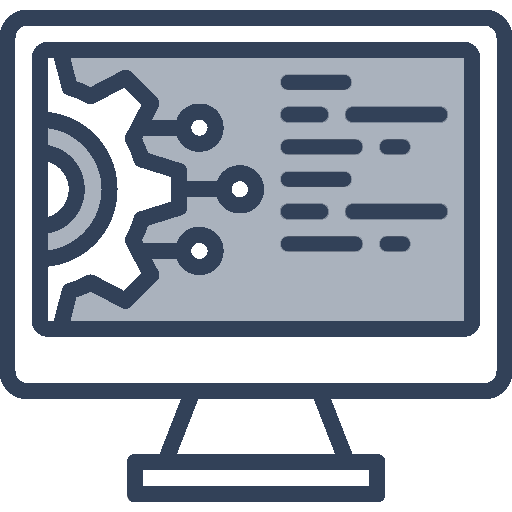Systems & Networking
Since its creation in 1983, the Internet has grown exponentially – becoming an essential part of our daily lives and connecting billions of people and devices across the world.
We tackle the challenges facing such large-scale interconnections of computing devices, exploring how these computing devices can work together, often in a distributed manner, to perform computations and disseminate information from one device to another.
What We Do


Sub Areas
- Approximate Computing
- Computer Networks
- Design Automation
- Distributed Computing
- DNA-Based Storage Systems
- Embedded Systems
- Hardware Accelerators (AI, etc.)
- Hardware acceleration with GPU/FPGA
- High Performance Computing
- Internet of Things
- Mobile Computing & Sensing
- Modelling & Simulation, Traffic Simulation, Crisis Simulation, Digital Twinning
- Neuromorphic Computing
- Operating Systems
- Parallel Architectures
- Parallel Computing
- Performance Evaluation
- Programmable Networks
- Systems Modeling & Simulation
- Wireless Networks
Our Research Projects

Multimodal AI × Sensors for Healthcare
Jingxian Wang’s lab develops multimodal AI with IoT sensors for healthcare applications. We explore non-invasive, everyday health diagnostics through intelligent sensing and AI. By integrating wireless, multimodal sensors with signal processing and machine learning, we build practical systems for early disease detection. Our approach emphasizes low-cost, continuous monitoring suitable for real-world deployment and daily use. This work is partially funded by Microsoft’s Accelerate Foundation Models Research Program.
- Mobile Computing & Sensing

AI for Space Networks; and Space Networks for AI
Jingxian Wang’s lab explores the intersection of AI with networks and systems in space. As mega-constellations (e.g., Starlink) scale rapidly, there’s surging demand for groundbreaking solutions that keep pace with exploding traffic and emerging services in low-Earth orbit. A recent example is SATE from the lab, published at ACM SIGCOMM 2025—an AI-accelerated traffic-engineering system that learns to produce near-optimal solutions in milliseconds for thousand-satellite constellations, delivering orders-of-magnitude speedups over classical solvers and higher throughput.
- Computer Networks

Enhancing Legal Document Services with Accessible and Private LLM Technology
This research focuses on developing a local, privacy-preserving Large Language Model (LLM) for legal document services. By eliminating reliance on external servers, the proposed solution enhances user privacy, efficiency, and reliability. The study addresses challenges related to memory and computational constraints through optimisations, aiming to provide accessible and secure document processing.

Operating System Support for Large Memory Systems
This project tackles performance limitations in large server systems with extensive memory. It proposes OS-level solutions to optimize memory access for both traditional Non-Uniform Memory Access (NUMA) systems and emerging disaggregated memory architectures. The goal is to improve performance, power efficiency, and cost-effectiveness for data centers.

Tackling Energy-Efficient Reception Challenge for Next Billion IoT Devices
The proposal addresses the energy challenge in IoT by designing energy-efficient receivers with tunnel diodes and LiFi or visible light communication, to enable sustainable, battery-free IoT devices.


NUS-NCS Joint Laboratory
NCS Pte. Ltd. (NCS) and the National University of Singapore (NUS) have established a joint research lab that is hosted in NUS to conduct research, develop capabilities and innovative digital solutions to protect individuals, businesses and public agencies in Singapore from a wide range of cyber threats. The joint lab is governed by a Management Committee comprising members from NUS and NCS.

Record & Replay: Framework for Network-wide Monitoring and Debugging
- Computer Networks, Programmable Networks

In-Network Acceleration for Latency Sensitive Applications for Future Communication Systems
- Computer Networks, Wireless Networks
Our Research Groups

Avant Lab
We push the frontiers of wirelessly networked AIoT devices—from wearables to space computers—advancing their networking, sensing, and computing capabilities.

Wireless, Embedded, Intelligence, Sensing, and Emerging Technologies in Real-world(WEISER)
We enjoy building systems. This involves embedded platform design, programming, networking, and real-world deployments of embedded systems. The required skill set ranges from chip fabrication and programming microcontrollers to developing networking and wireless protocols, distributed computing concepts, machine learning frameworks, and prototyping applications for various scenarios.

Verified Systems Engineering
We do research in the design and implementation of programming languages (PL), mathematical models of computation, and computer-assisted formal reasoning. We investigate the theoretical foundations of programming and build tools for ensuring that certain kinds of costly software errors and vulnerabilities never occur in the real-world code, which many people rely upon in their everyday lives.
